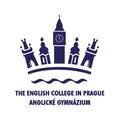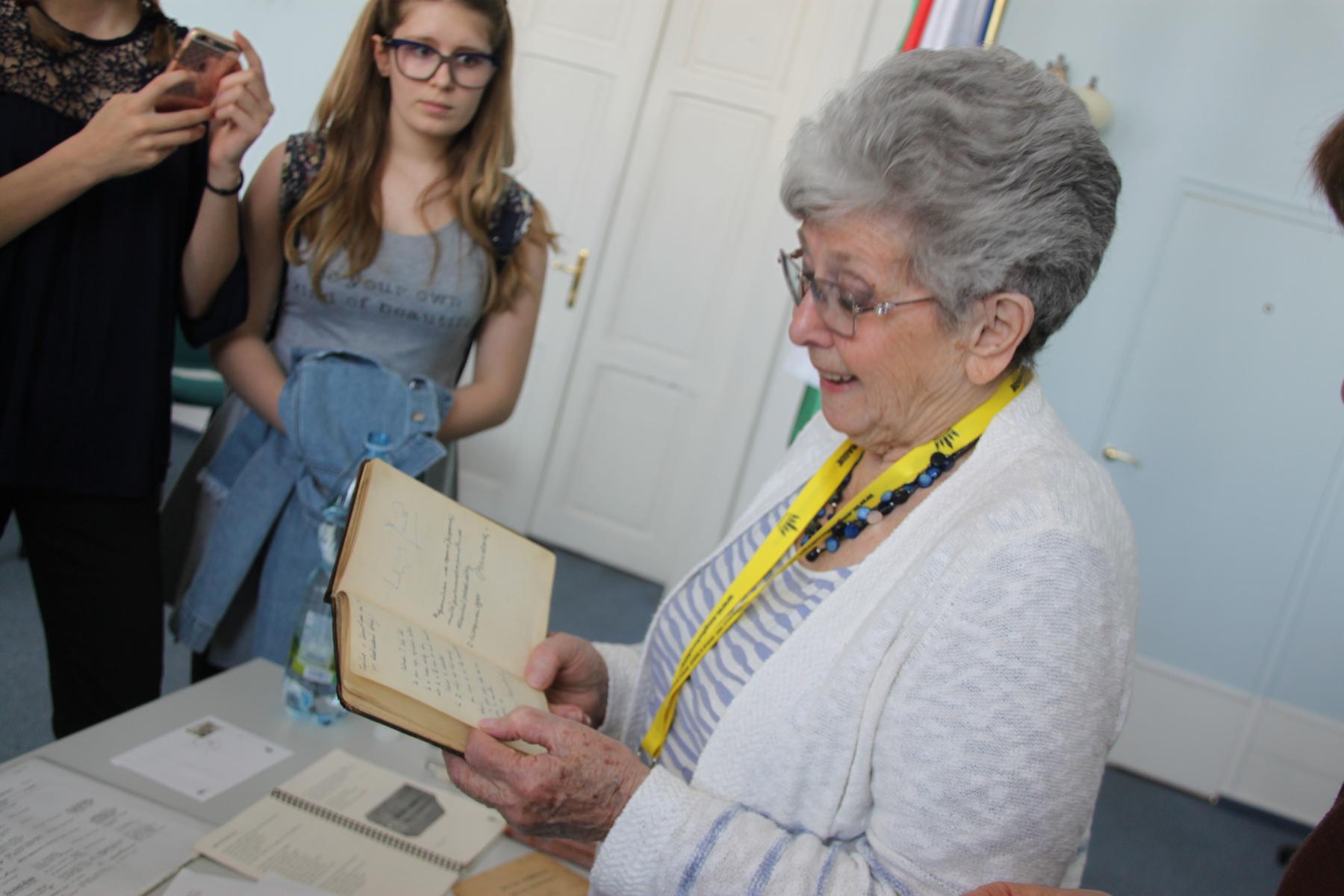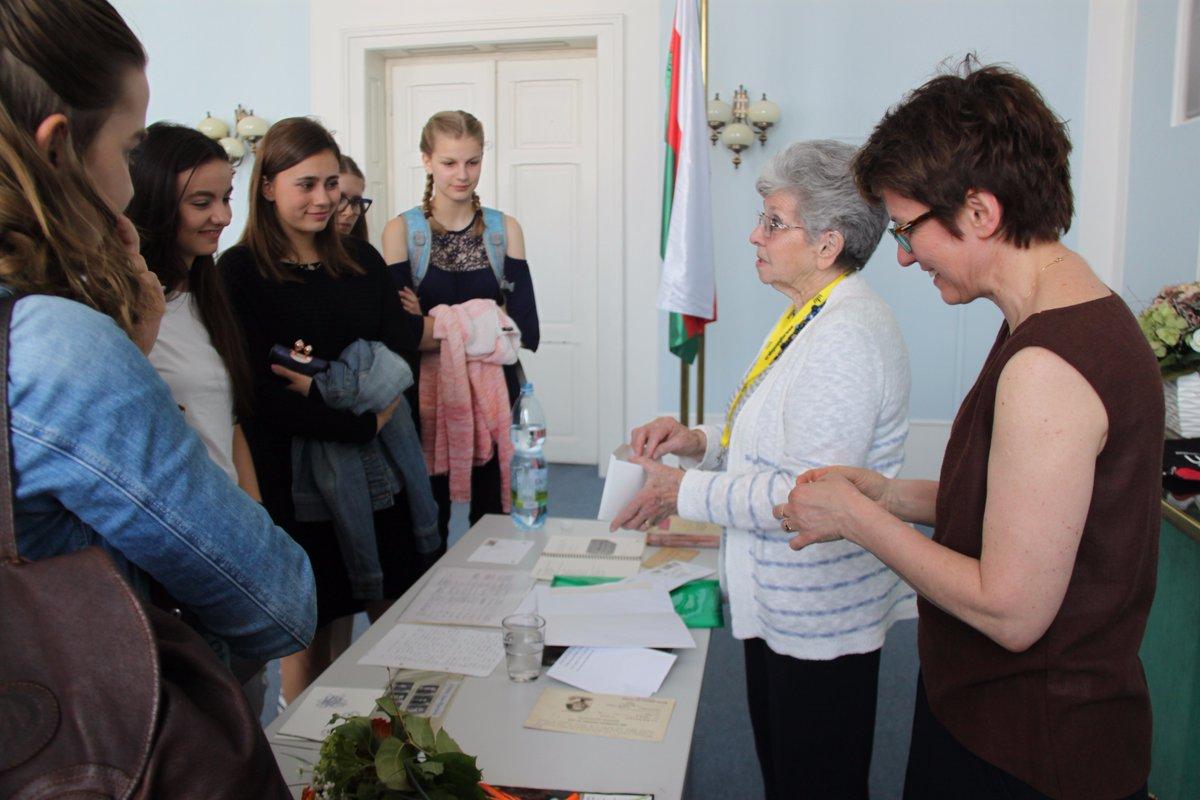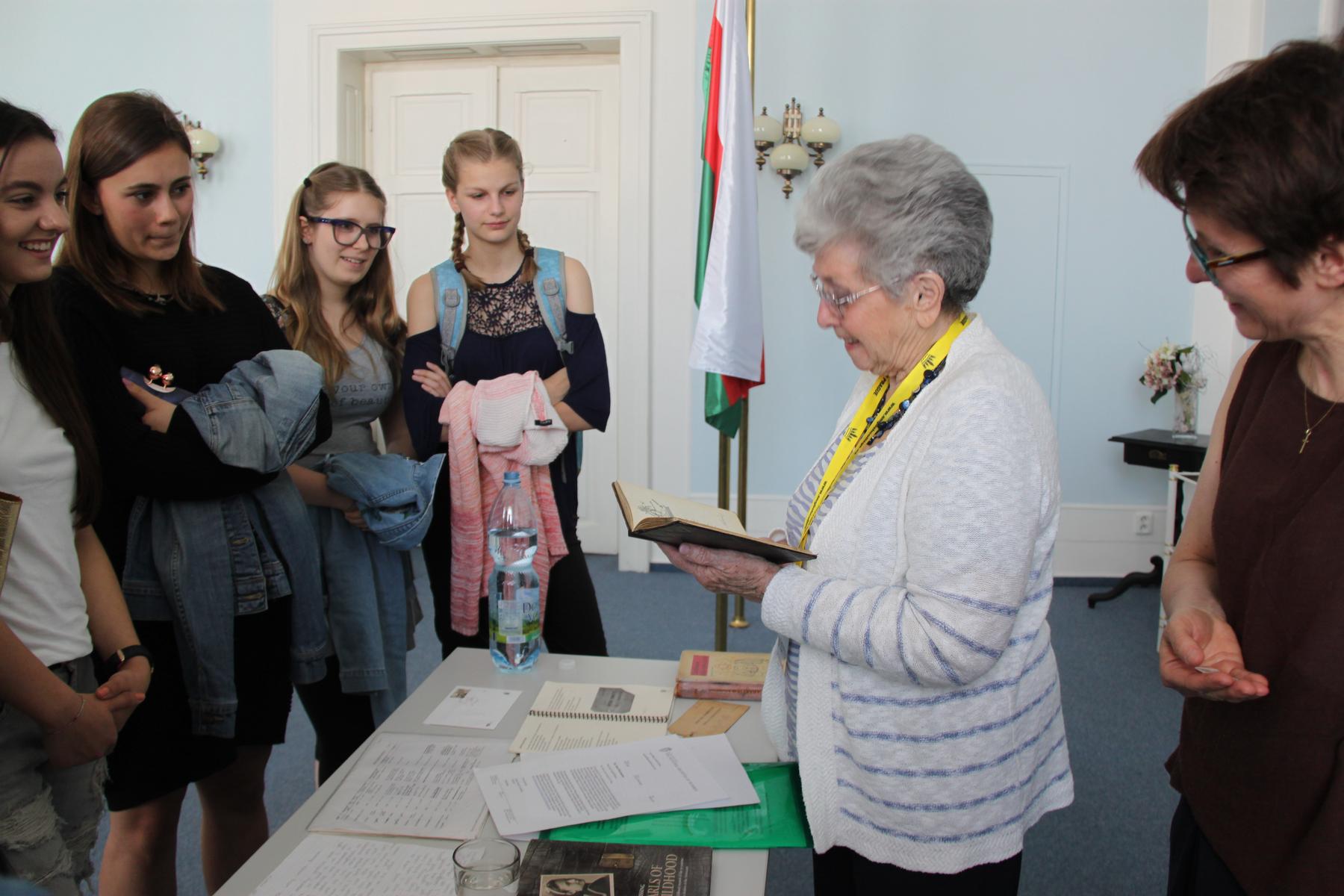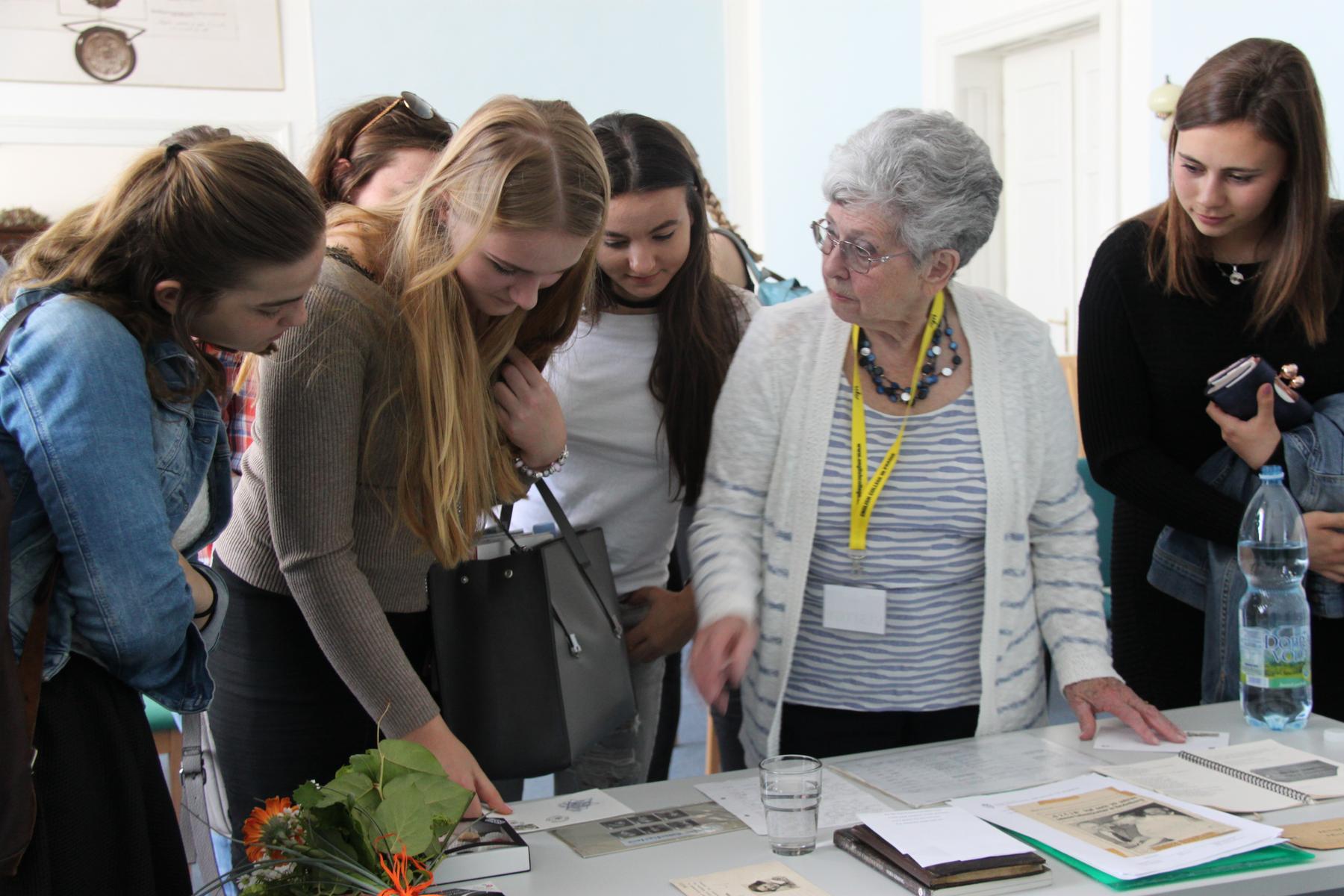Guest Speaker / Host
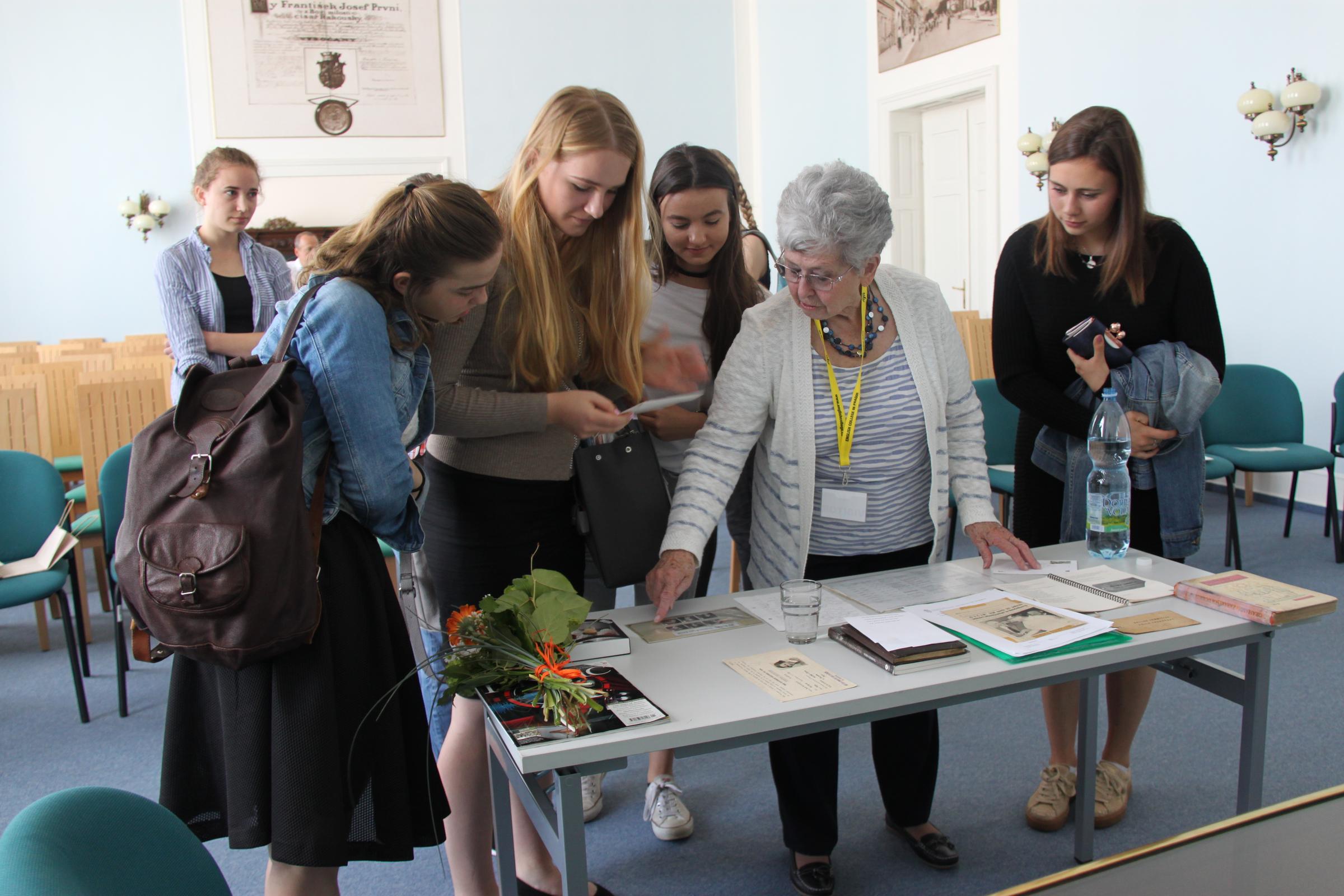
Lady Grenfell-Baines visits ECP
On Friday 2nd June, the English College was honoured by a visit by Lady Grenfell-Baines, who came to talk to us about her touching life story as one of the children who was rescued by Sir Nicholas Winton. He was a British humanitarian who organised the rescue of almost 700 children, most of them Jewish, from Czechoslovakia on the eve of the Second World War in an operation later known as the Czech Kindertransport. Sir Nicholas found homes for the children and arranged for their safe passage to Britain.
We heard all about Sir Nicholas Winton and the kindertransport’s escape from the Nazis in 1939, from child survivor, Milena Fleischmannová, now Lady Grenfell-Baines.
Her touching story inspired us all especially because we could see the gratitude but also the enthusiasm with which she approached her life. I found it very important for us to be reminded of what happened and for young children to be educated about those events to make sure it never happens again.
Personally, I cannot imagine going through such a traumatic experience at such a young age and that is also why, by the end of the talk, I was so blown away by the speech that I had trouble going back to my normal life without thinking about it. Nowadays our generation sometimes tends to take many things for granted and doesn’t appreciate what we are given. Things such as freedom of speech, living with our families, the ability to travel to foreign countries or generally a feeling of security in one’s country are so important, yet not everyone has them. It has helped us all to realise how we should appreciate those things in life because they are, in fact, what makes us lucky.
On behalf of all the students who had the chance to attend this lecture, I would like to thank Lady Grenfell-Baines for visiting our school and giving us the chance to understand a little bit more what happened. For me personally, the 60 minutes were a great honour.
Linda Novobilská, Year 3 student
Lady Grenfell-Baines navštívila ECP
V pátek 2. června bylo Anglické gymnázium poctěno návštěvou lady Mileny Grensfell-Bainesové, která si s námi přišla popovídat o svém životním příběhu jednoho z dětí, které zachránil sir Nicholas George Winton. Byl to britský humanista, který zorganizoval záchranu téměř 700 dětí, většinou židovských, z Československa na začátku druhé světové války v operaci později známé jako Český Kindertransport. Winton nalezl domovy pro ohrožené děti a zajistil jejich bezpečnou cestu do Británie.
Jedné z přeživších dětí - Milena Fleischmannová, nyní Lady Grenfell-Bainesové, nám vyprávěla o siru Nicholasovi Wintonovi a o tom, jak v roce 1939 organizoval transporty dětí z nacistického ohrožení.
Její dojemný příběh nás všechny inspiroval, zejména proto, že jsme viděli vděčnost, ale také nadšení, s nímž přistupuje k životu. Myslím si, že je velmi důležité připomínat si, co se stalo, a vzdělávat mladé lidi o těchto událostech, abychom se ujistili, že se nebudou opakovat.
Osobně si nedokážu představit takový traumatický zážitek v tak nízkém věku, a proto jsem byla na konci přednášky ohromena natolik, že jsem měla problémy se vrátit do svého běžného života, aniž bych o tom přemýšlela.
V dnešní době má naše generace často tendenci brát mnoho věcí jako samozřejmé a neumí ocenit vše, co má. Svoboda projevu, bydlení s našimi rodinami, možnost cestovat do cizích zemí nebo obecně pocit bezpečnosti ve vlastní zemi jsou velmi důležité, ale ne všichni je mají. Setkání nám všem pomohlo si uvědomit, že bychom si měli vážit toho, co všechno máme, a díky čemuž máme takové štěstí.
Jménem všech studentů, kteří měli možnost zúčastnit se tohoto setkání, bych ráda poděkovala paní Mileně Grensfellové-Bainesové za návštěvu naší školy a za to, že nám dala příležitost pochopit trochu více o tom, co se stalo. Pro mě osobně bylo těchto 60 minut velkou ctí.
Linda Novobilská, studentka 3. ročníku
MILENA GRENFELL-BAINES: It is not enough to only live life and not being naughty
Interviewed by Amálie Vystavělová, Year 5, for www.lauderky.cz
Milena, a nine year old girl, with her younger sister, left Prague’s main railway station on August 2, 1939, on the last successful train organised by Sir Nicholas Winton. During her life in Britain, she was involved in the merging of her two homelands and was awarded the Gratias agit prize. Today she is the Patron of the Emmy Destinn Foundation.
Do you think that in the months or years before the war, people had realised what the scale and impact of it would it be?
I think they expected a lot of bad things because they knew what was going on in Germany since 1933 . They put in prison the Communists, the Jews ... People probably did not expect all of Czechoslovakia to be occupied, but they saw that people were already sending children to England (about 10,000 German Jewish children on kindertransport before the war). But I have the impression that no one knew, no one could see what was going to happen here.
In your opinion, is there sufficient awareness nowadays of what the Holocaust was?
I have the impression that over the past ten years - of course I do not live here, but in England - people are talking a lot about it, every school has so-called holocaust studies. I do a lot of lectures in English schools and I have learned that most students when they are in the equivalent of ECP’s Years 1 and 2, their school usually organises excursions to Auschwitz.
What is your relationship to Judaism?
I was never brought up as a Jew, but of course I am Jewish. My father was not religious and my mother was a Jew, so I know all about it and I do talk about it at the lectures, and I was on Sir Nicholas's train, but I was not brought up as a Jewish girl.
Have you ever thought you would follow up on your Jewish roots?
I do not, my sister does, after sixty years, which surprised me, because she did not want to admit it at all. She said she had been struggling with the departure for years, she just did not know why we left. She was three and a half years old and thought her mother was angry at her in some way when she was sitting on that train. She even went to what is now called "counselling" .
How did you feel about this separation from your parents? What do you still remember about it today?
I was nine years old when we left with my sister. I remember that she did not speak the whole way. My sister then completely loved her English mother. It was probably more of a trauma for her than for me. Of course, it was all right again (the Fleischmann family, unlike most other families in Britain, were once again reunited). When I talk to my children, they say to me, "I would not put anyone on a train that way." One cannot imagine today what it was like for the parents.
Sir Nicholas Winton wrote this mission statement: "Do not be content in your life just to do no wrong". How does this work for you?
It was just that Nicky said it was not enough just to be good and not to be angry, but that every day one should try to do something good. So we as "Winton's children" are trying to live up to this.
How did it affect your life when you became aware or somehow discovered how lucky you were and who helped you?
What was interesting is that our parents never said anything about it after we settled and lived in England. So, we took the English way of life as normal. Only after the Holocaust had begun and when we really learned about it, of course, we all started to think about it and the fact that our cousins, grandfather, grandmother died there... So for us it was completely ... it cannot be explained.
Your grandfather gave you a memorial book before you left, where he wrote that you would forget about your homeland as you are leaving and your family. How and in what direction do you think national consciousness is important?
This is an interesting question in this country. So I know what's going on here, and I've never imagined it. I always thought that once the Communists left, there would be paradise, which is a stupid idea. We also have problems with our Government in England, but I'm so used to living in England today, so I'm getting used to it, and I can not judge it from this point of view. But I have noticed that ordinary people here know much more about European history than in England. What I really appreciate here is Czech music and culture, but I would skip politics.
How should people remember Sir Nicholas’s actions?
In Bohemia they all know him today. A school is named after him, he is a star... And he always said it was not he alone who did it, that there was a whole team of people in Prague, that he came back and that he was never in danger. That’s what he claims. But in the end, he was the only one of them who survived, so people should see him as an example. He is someone who should not be forgotten.
Originální verze rozhovoru v českém jazyce zde:
MILENA GRENFELL-BAINES: NESTAČÍ JEN ŽÍT SVŮJ ŽIVOT A NEZLOBIT
AUTOR: Amálie Vystavělová, 5. ročník
